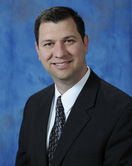When the issue of the Trinity comes up, we usually say it is a mystery. I do understand that the Trinity is in some ways a mystery. None of us, for all eternity, will ever really grasp the intricacies of God within himself as one God in three persons. As we think about the Trinity, the subject is daunting and almost overwhelming. Where to begin is one of hardest parts of the discussion. I think it is best to describe what God is not, before trying to explain what he is.
First of all, the word Trinity does not mean we worship three gods. As we often see in various cult groups, when Jesus is misunderstood in Scripture the result is often tri-theism. That simply means three distinct gods to be worshiped. Hinduism as well as ancient Greek mythology were polytheistic, in other words they had hundreds of gods. That is most certainly not what we mean when we say, the Father is God, the Son is God and the Holy Spirit is God. Deuteronomy 6: 4 settles that discussion saying, “Hear, O Israel! The LORD is our God, the LORD is one!” The Jews of the Old Testament were very unique from the neighboring nations because they were distinctly monotheistic, meaning they worshiped only one God.
As true as this is, there is another error that can be committed regarding the doctrine of the Trinity. Some people want to emphasis God’s oneness so much that they deny his threeness. This is a dangerous heresy. These people will say that the Father and the Son and the Spirit are only different manifestations of God. In other words, they understand God as being like an actor in a play wearing masks. Sometimes he is the Father, sometimes he is the Son, but he is never both at the same time. This belief is sometimes called the “Superman” theology. You know, Clark Kent steps into the phone booth as a man, he steps out Superman. The proper term for this belief is modalism because God takes on different modes.
These two very easily committed errors are why the Trinity is such a difficult thing to talk about. We love analogies. The problem is that every analogy of the Trinity almost always commits one of the two errors mentioned above. For example, sometimes people will describe the Trinity as being like water. Water can be in liquid form, solid form as ice or gas form as steam, but it is still H2O. The problem is that the analogy leads to modalism because the element cannot be liquid and solid at the same time. God is simultaneously three persons of exactly the same essence and nature, one God!
In Christ,
Blain Craig

 RSS Feed
RSS Feed